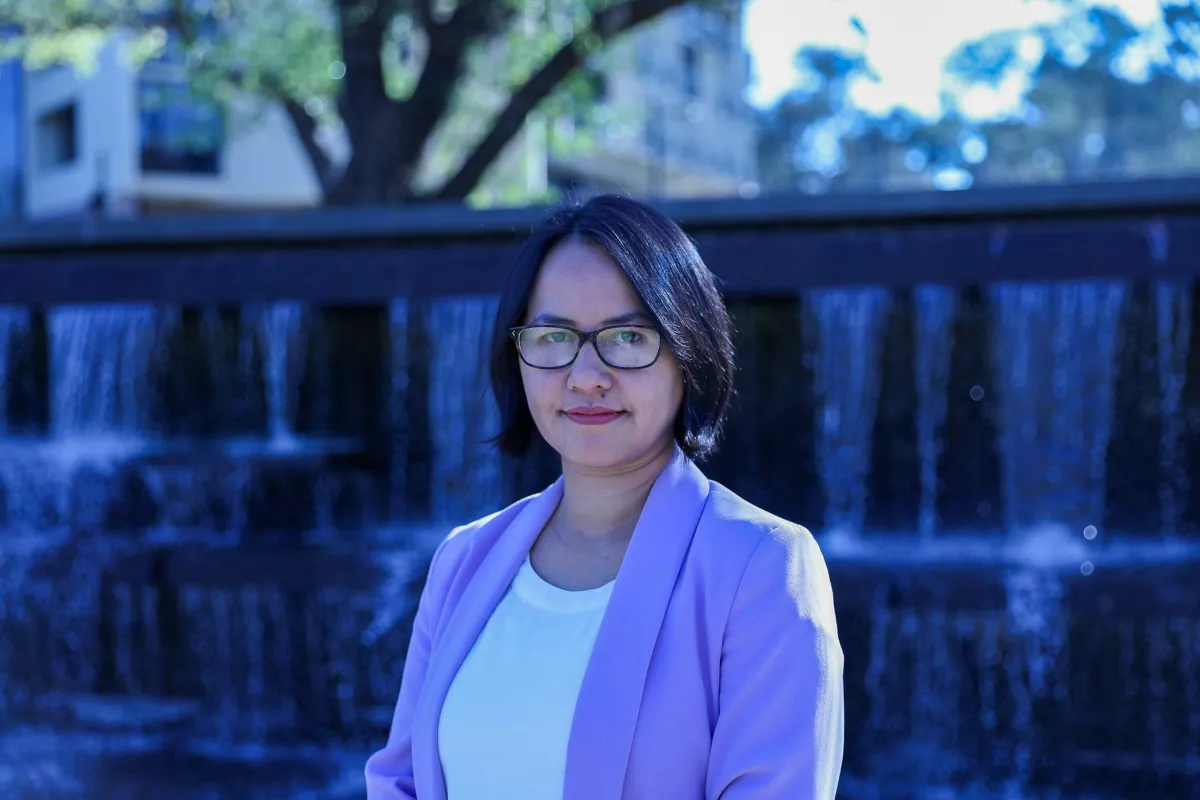Bridging Boundaries: Dr. Rini Astuti's Journey

Meet the Research Fellow, Dr Rini Astuti, as she navigates the realms of academia and activism to drive impactful research at the intersection of climate justice and public engagement.
Dr. Rini Astuti is joining CPAS – UNESCO Chair in January 2023. As a Research Fellow for the ANU - UNESCO Chair on Science for the Public Good, Dr Astuti’s focus is on conceptualizing and investigating transformative development in the context of a changing climate. Through case studies in Indonesia and Australia, she aims to explore how we can place social equity issues at the heart of climate change and development discussions.
Quote form rini: “The UNESCO – Chair is an excellent project that combines research with public engagement at the cutting edge issues faced by humanities such as sustainability transitions and AI, I am lucky to be a part of the lively and collegial team working on such important themes”
“Rin’s prior experience in environmental governance, critical development study, and public policy provide her with sound knowledge and experience to perform these task,” Professor Sujatha Raman said. “We welcome the opportunity to help her channel that positive energy toward supporting CPAS and the UNESCO Chair mission.”
Prior to joining CPAS, Astuti was at the Crawford School of Public Policy. While at Crawford school she co -led a study on the challenges, opportunities, and trade-offs to decarbonisation in three important Asia Pacific ecosystems: Mekong riverscapes, Pacific oceanscapes, and Southeast Asia forestscapes. This project was funded by the British Academy and includes transnational collaboration between four universities: Northumbria University (the United Kingdom), Australian National University, Victoria University of Wellington (New Zealand), and Can Tho University (Vietnam). As the co-chief investigator, she led the investigations into smallholders’ roles and aspirations in realising just and inclusive decarbonisation in the context of rapidly changing Southeast Asian forest and peatland carbon landscapes. Dr Astuti co-authored a report which was published by the British Academy based on this research: https://www.thebritishacademy.ac.uk/publications/asia-pacific-climatescapes/
In her first year at CPAS, she has successfully secured five new research grants. These grants include her role as the Principal Investigator in a research project funded by the Open Society Foundation. This project investigates the socio-ecological impacts of Chinese-driven nickel extraction and manufacturing for Electric Vehicle batteries in Indonesia. He also just secured a seed grant from the ANU – Institute of Climate, Energy and Disasters Solutions (ICEDS) to study the justice and equity components of the critical mineral sector in the Asia Pacific. Additionally, she is a co-chief investigator in three KONEKSI – DFAT-funded research projects in Indonesia. These projects focus on climate change adaptation and food security in eastern Indonesia, grassroots women’s climate networks, and the landscape of genetic modification policies and technologies to address climate change adaptation issues.
In addition to academia, Rini has also held several positions in non-profits focused on equity and climate change, including Women’s Solidarity for Human Right Yogyakarta, the Institute for Essential Services Reform, and the World Wildlife Foundation. She also worked at the science policy interface, as an Expert Staff for the House of Regional Representative (senate) Republic of Indonesia. Rini advised the members of the Committee of Economic and Natural Resources with weekly briefing on issues related with environment, economic and natural resources management in Indonesia. She also was the Climate Change Coordinator for the United Nations Development Programme Indonesia, where Rini coordinated all activities on climate change, conducted evidence-based policy advocacy and resource mobilization. These non-academic experiences cement her identity as a scholar activist, working at the intersection of knowledge co-production and social environmental justice issues.
Dr Astuti’s favorite quote is from Raymon Williams: “To be truly radical is to make hope possible, rather than despair convinsing”, she said this is a reminder that we can do small things that matter rather than being doom and gloom.
